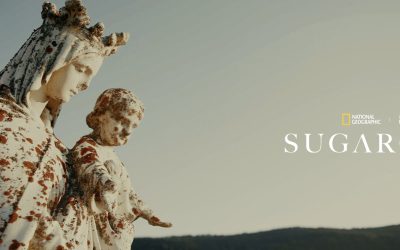
Battle-scarred but filled with hope for the future, America’s “most famous Indian” laid out his vision for aboriginal policy reform during a recent visit to Canada. Long reviled as a radical and criminal, Russell Means described four basic changes that could better the lot of North America’s indigenous peoples. A veteran of political theatre, Means uses tough rhetoric to deliver a very individualist message, a philosophy of freedom and responsibility.
Now a candidate for the leadership of the Pine Ridge Indian Reservation in South Dakota, his home, Means was a founder of the American Indian Movement, a group that achieved notoriety – and jail sentences for some, including Means – in a famous stand-off with the FBI at Wounded Knee in 1973. Although he makes no apology for AIM’s role as a catalyzing vanguard, he now eschews Oka-style confrontations because he thinks they are no longer needed. “Indian people are now engaged in self-determination at their own speed,” he explains in a Frontier Centre conversation (link below).
A multi-talented man, Means took part in many Indian political battles, external and internal, all the while working at the United Nations, in Hollywood as an actor, at home as an artist and best-selling author, and not insignificantly as the father of fifteen. He prefers the word “Indian” to other available terms, and explains that it’s unpopularity among his people is the product of a linguistic misunderstanding: The “word . . . is an English bastardization of two Spanish words, ‘in Dio’, ‘in with God .’” Means’ views on public policy are just as contrary to the prevailing wisdom among his people.
Means distills his recommendations for positive change into four positions:
Means calls the current structure of Indian reserves “Communist” and scathingly dismisses the resort to gambling enterprises. “I am totally against anything for free – that’s casinos, that’s government handouts. Anything you don’t work for you shouldn’t get. If you don’t work, you shouldn’t be rewarded, period. It creates a dependency syndrome that is only beneficial to those who are in control.”
These words resonate powerfully among the considerable numbers of disaffected residents in Canada’s First Nations. They struggle daily with various apparatchiks from the mainstream government and from their own councils, the net effect of which is like a smothering blanket over enterprise on reserved lands. If self-government has any chance of working, it must allow the means to remove that blanket, take down a system that prevents security of possession, the collateralizing of assets and the accumulation of individual pools of capital. One Manitoba family named Gabriel, for example, built a successful cattle business on their home reserve, only to see it seized on short notice for a political slight. That has to stop.
Russell Means’ visit to Canada set off alarm bells with the folks at Canada Customs. Only after a special temporary visa was purchased did they allow him to step foot in Canada at all. A shipment of his renowned autobiography, Where White Men Fear to Tread, was blocked at the border, he thinks because the word “men” is perhaps politically incorrect. If anything, this shabby treatment underscored the freedom message he was finally allowed to deliver. If it’s deemed unsafe for us to read a good book, perhaps the liberties of non-native citizens need a tune-up.
The most poignant section of Means’ Winnipeg speech came during the question period, where he fielded several questions about the wounds still afflicting aboriginal communities, and what he would say to young Indians to help them overcome the odds. He called on the power of tradition, of family, of hard work and personal responsibility. He asked native leaders to shake off authoritarianism and embrace economic freedom. “We need to be free to be responsible…” he said, “free to fail.”
Like everybody else.



